I Was One of the First Vaccinated Americans to Visit Thailand in More Than a Year — Here's What It Was Like
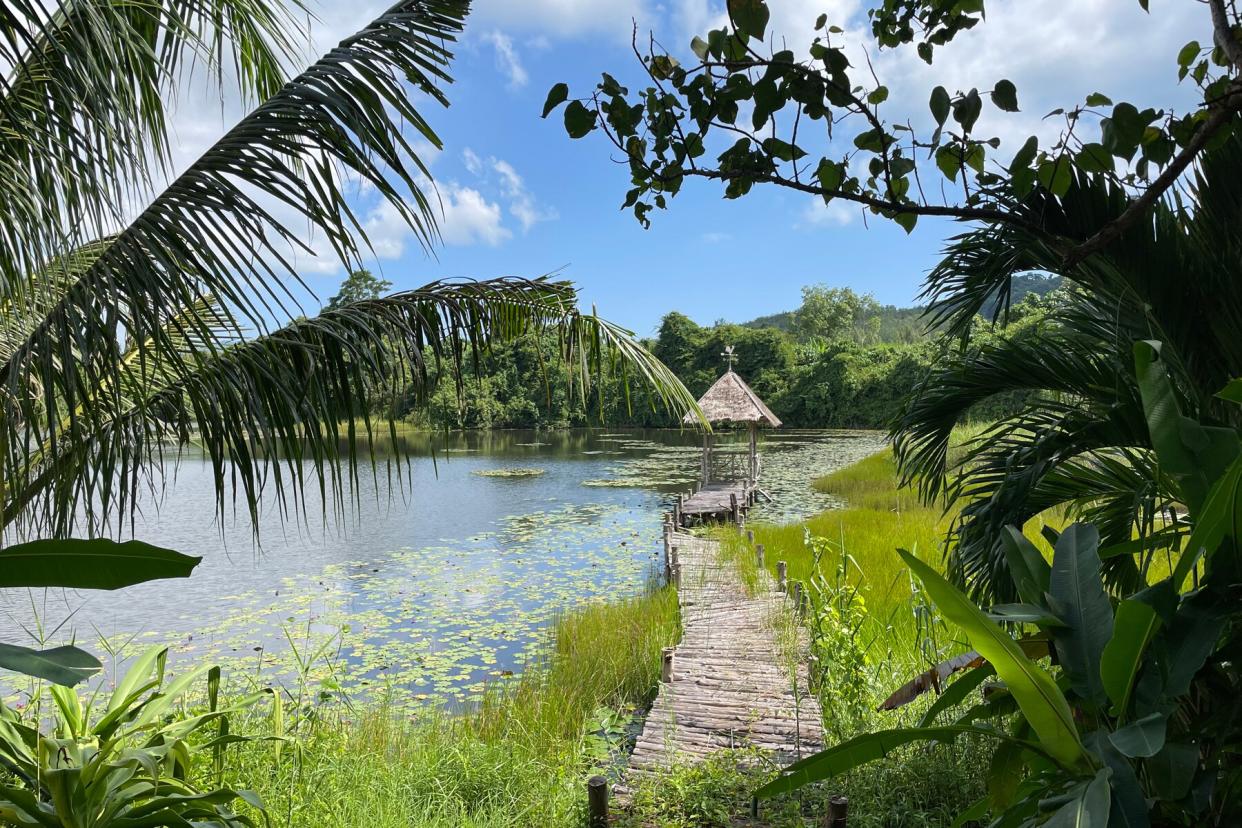
Alison Fox
Less than 60 years ago, the island of Phuket was full of mangroves, coconut plantations, and local fishing villages sporting the remnants of a once thriving tin industry. In recent years, the palm tree-lined roads and white-sand beaches have been primarily filled with droves of tourists drinking cocktails in the tropical heat and hopping from island to island on boat trips.
The pandemic forced everything to slow down and, in some ways, allowed Phuket to go through somewhat of a rebirth, reclaiming a slower pace of life that felt just out of reach before. Since it reopened to tourists with the Phuket Sandbox program, anyone who does come is now greeted by an abundance of hipster coffee joints, quiet, boho-chic shops, near-empty beaches, and a keen focus on farm-to-table, zero-waste dining.
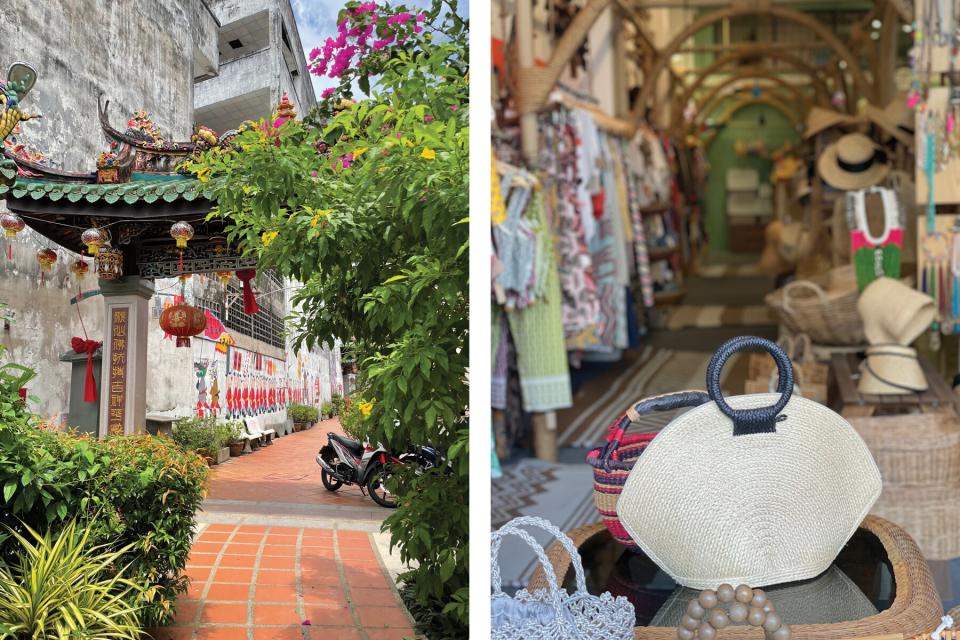
Alison Fox
These days, sea glass-colored water crashes in waves against the island's beaches, once full of bikini-clad travelers, but now home to more long-tail boats than people. It was night and day compared to the last time I visited Phuket in December 2019, just before the COVID-19 pandemic halted travel around the world. Then, we had followed the crowds, chartering a boat to see the breathtaking rock formations in Phang Nga Bay. But now, confined to the island of Phuket as one of the first vaccinated Americans to visit in more than a year, I discovered an unhurried and diverse place with avant-garde dinner shows, high-end dining, welcoming local communities and markets, and an innovative focus on sustainability — all given space to shine because of the lack of crowds.
"It's quieter than when I came in '95, so I'd say it's like it was 30 years ago," Daniel Fraser, cofounder and CEO of Southeast Asian travel company Smiling Albino, told me as I reflected on the end of my 10-day trip. "For anyone who's coming here in the next six or eight months… it's a bit of the best of both worlds: You have all the amenities, services, and world-class luxury, but a 10th of the people who came here two years ago. You get a backstage pass to one of the great islands of the world."
Since Phuket reopened to fully vaccinated travelers on July 1, more than 11,000 people have arrived. But that is far fewer than July 2019, when an average of more than 13,000 people landed in Phuket each day.
Eventually and inevitably, Phuket will return to the hot spot it once was. The tourists and cruise ship visitors will come back, and the sleepy beach town vibe will slowly fade. But Fraser told me he thinks this new Phuket isn't going away so fast.
"The pandemic has allowed Phuket to bear its soul a little bit… It has allowed undiscovered Phuket to really shine and say, 'It could always be like this,'" he said. "I think it will always take a back seat to the big draws, which are the incredible beaches and islands and great nightlife... But it's going to be part of the message of this island going forward."
In going now, I was able to discover a different kind of Phuket than the last time I was there. And while the paperwork may be extensive and a trip isn't without risk, anyone lucky enough to visit now will be glad they did.
What to Know Before You Go
The Phuket Sandbox program opened on July 1, welcoming fully vaccinated visitors to the island without a quarantine, but requiring that they remain on Phuket for at least 14 days.
And there is a lot of paperwork involved.
Before heading to Phuket, I had to secure a Certificate of Entry, obtain proof of insurance that would cover up to $100,000 in potential COVID-19 treatments, prebook a stay at an SHA Plus-certified hotel (and stay in the same property for at least seven nights before switching to another), and book and prepay for all required on-the-ground testing, which travelers can do through their hotel.
Lastly, I had to show proof of a negative COVID-19 PCR test taken within 72 hours of my departure and download a pair of contact-tracing apps (that I would end up having to show to various restaurants and activities throughout the trip).
While only vaccinated adults are allowed, children under 18 are not required to be vaccinated if they are traveling with a fully vaccinated parent or guardian, but they must still complete prearrival testing. On the island itself, 88% of residents have received at least a first dose of a vaccine and 69% are fully vaccinated, according to the Tourism Authority of Thailand.
Since my trip, Thailand has updated the program to allow travelers to leave Phuket after at least seven days to visit other parts of Thailand. Before venturing off, travelers must test negative again and obtain a "Release Form."
Yes, it took a ton of paperwork and preparation, but that's par for the course when it comes to traveling these days, and it was well worth it once I arrived at my destination. The day before my trip, I printed out all my documents and stored them with my passport, ready to head to the airport.
How I Got There
There are several airlines that are currently flying directly into Phuket, including British Airways, Cathay Pacific, El Al, Emirates, Etihad Airways, Qatar Airways, and Singapore Airlines.
I chose Qatar Airways and boarded a flight from John F. Kennedy International Airport to the island with a layover in Doha. After checking in at the airport (and showing my thick pile of documents), I boarded my first flight, settling into a Qsuite to start my more than 24-hour journey.
Flying business class is always nice and having a sliding door that I could close and separate myself from the rest of the cabin made me feel extra comfortable on the longest flight I'd taken since the pandemic began.
In Doha, I had more than a six-hour layover and the airport was busy. However, everyone was wearing masks and the spacious Al Mourjan Business Lounge made the time not only bearable, but enjoyable, complete with a glass of Laurent-Perrier Cuvee Rosé.
What It Was Like When I Arrived
Upon landing in Thailand, we were whisked away to get our documents checked and greeted by airport staff in full PPE (face shields and hair covers included). I sat on a plastic chair and showed all my paperwork was in order before having it checked again at a second desk and then finally being waived through passport control. Lastly, I was led to a booth where plexiglass separated me and the person testing me for COVID-19, and was told to wait for the results at my hotel.
Checking into my suite at the Rosewood Phuket and temporarily quarantining there was hardly a prison sentence — and the private pool deck, sea view, and top-notch room service (hello, mango sticky rice) didn't hurt either.
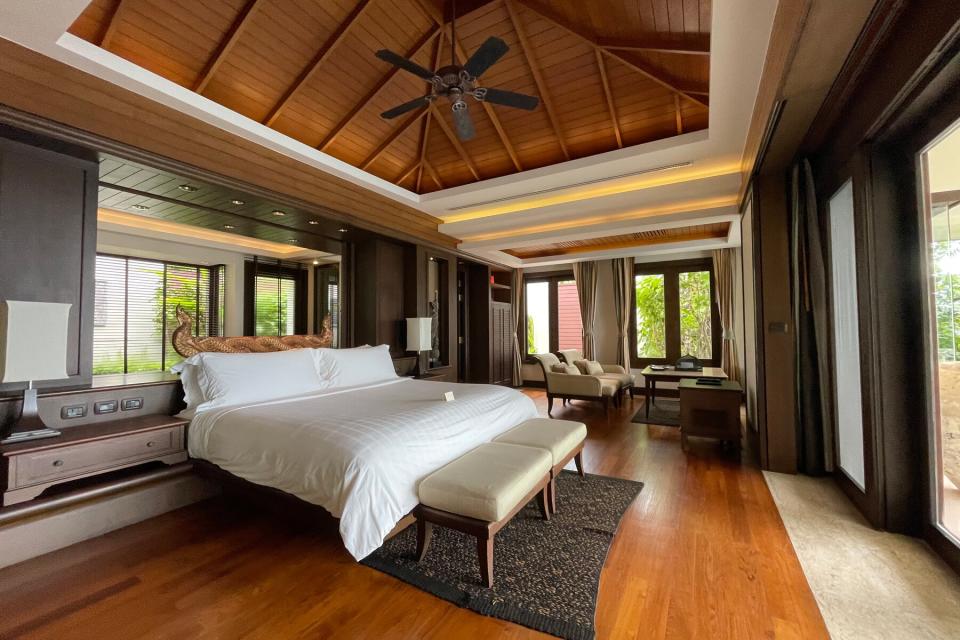
Alison Fox
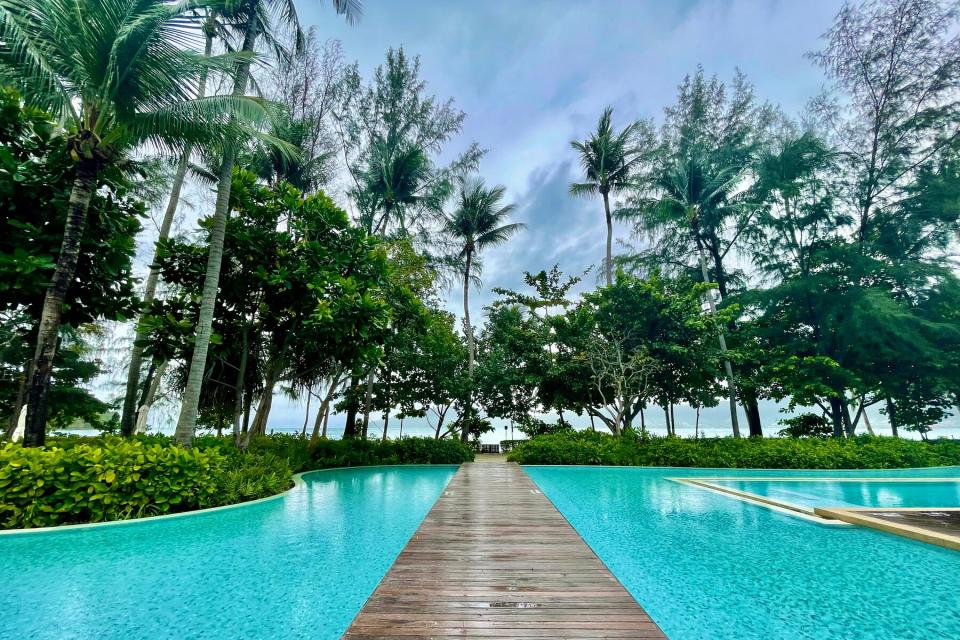
Alison Fox
However, like many trips today, traveling is not without risk. There was the possibility that me, someone in my group, or a close contact from the plane could test positive, and I'd have to relocate to a different quarantine hotel. Luckily, that didn't happen and the hotel informed me that I'd tested negative before breakfast the next morning.
And so began my 10-day tour of Phuket, which felt more and more like a typical trip with each passing day.
I met elephants at the Phuket Elephant Sanctuary, watching the gentle giants rescued from places like riding camps and keeping my distance so as not to disrupt natural behaviors like bathing. I strolled in and out of cute shops in Phuket Old Town, picking up locally made screen-printed shirts for my nephews and rattan shoes for myself, before dipping into John Donut for the best apple fritter I've ever tasted. And I sampled sticky rice with coconut and sipped fragrant tea while being introduced to a local community on the north side of the island, embracing the chance to see a slower side of Phuket.
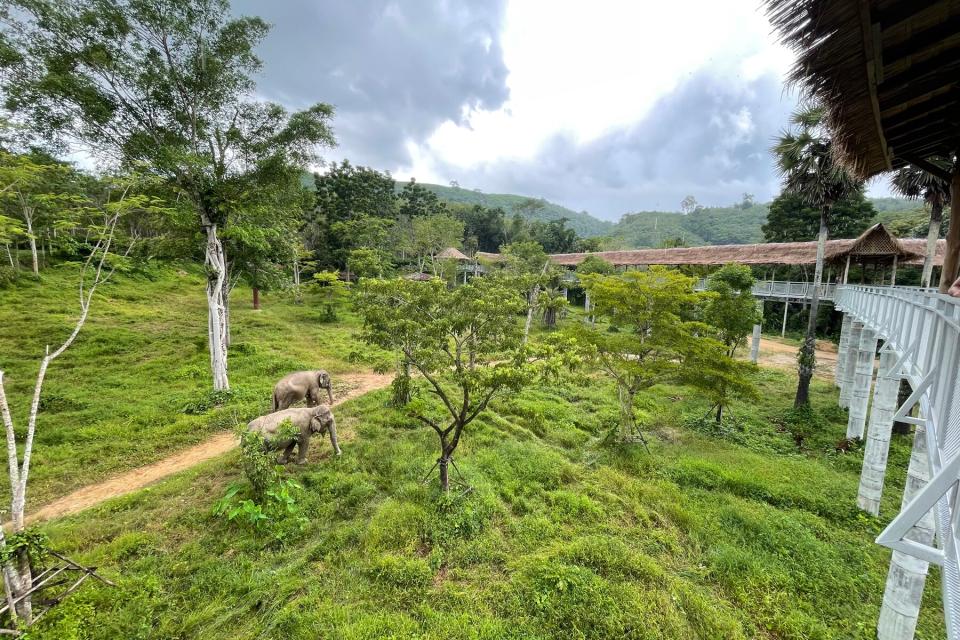
Alison Fox
On my last day, I settled into a table at the Hideaway by Jampa, an organic initiative spearheaded by the Trisara hotel where I had checked in a few days earlier. This was farm-to-table at its best — I picked out my own produce and collected my own eggs from the farm's free-roaming chickens — so fresh they were still warm — before a group of super-talented chefs turned the ingredients into innovative dish after innovative dish.
The farm participates in a local network put together by the Thai Organic Consumer Association (TOCA) to connect organic farmers with hotels and restaurants, and allow visitors to trace the supply chain of menu items through their platform.
The day, like many others on the island, was the perfect mix of relaxed and elevated. And it put an exclamation point on a diverse, compelling Phuket I hadn't realized existed, but was so happy to have experienced.
Alison Fox is a contributing writer for Travel + Leisure. When she's not in New York City, she likes to spend her time at the beach or exploring new destinations and hopes to visit every country in the world. Follow her adventures on Instagram.

